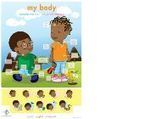
Au Cameroun, ce pays d’Afrique centrale qui fait 475 442 km⊃2; de superficie, le français et l’anglais sont les langues officielles. Les francophones (78% de la population totale) sont plus nombreux que les anglophones (22%). A propos des langues camerounaises proprement dites, on en trouve tellement. Des documents officiels font état de plus de 280 langues. Elles peuvent être regroupées en deux grands groupes : les langues soudanaises parlées dans le Nord et les langues bantoues dans le Sud. Seulement, il ressort de l’observation et des recherches que certaines de ces langues comptent très peu de locuteurs que leur disparition pourrait passé inaperçu même pour l’observateur averti. Ce fait est favorisé par l’existence de langues vernaculaires (véhiculaires) usitées en même temps que les langues nationales. Les principales langues véhiculaires sont donc les suivantes : Le fufuldé, une langue qui est en usage dans tout le Nord Cameroun ;
Le bassa’a est parlé dans le pays bakoko, tùnen et le Littoral, le Centre et le Sud ;
Le pidgin à l’Ouest, au Littoral, au Nord-Ouest et au Sud-ouest.
Le béti-fang très courant dans les régions du Centre, du Sud et de l’Est. Par Bruno P.

SENEGAL-CULTURELouis Camara met en garde contre le nationalisme littéraireDakar, 23 juin (APS) – L’écrivain sénégalais, Louis Camara, a conseillé aux hommes de lettres notamment d'éviter de tomber dans le nationalisme littéraire, rejetant l’existence... "Il faut éviter de tomber dans ce que j’appelle le nationalisme littéraire", a-t-il déclaré dans une interview publiée dans l'édition de mercredi du journal Le Quotidien. "Pour la littérature, il n’y a pas de frontière. L’écrivain a le choix, le droit d’écrire dans la langue qui lui parle, celle qu’il a choisie, celle dans laquelle il se sent le mieux", a affirmé Camara, Grand prix du chef de l'Etat pour les Lettres et auteur notamment de "Le choix de l'Ori''. Interrogé sur l’existence ou non d'"un paradoxe à vouloir faire des livres en langues nationales à outrance au détriment de la langue française qui est la langue commune et officielle", Louis Camara a estimé qu’il faut au contraire "faire des efforts pour développer la littérature dans toutes les langues". "Dans nos langues africaines, il faut jeter les bases pour pouvoir disposer d’une vraie littérature africaine. Ça ne se décrète pas comme ça du jour au lendemain. Il faut un travail préparatoire. Il y a tout un système qu’il faut mettre en place pour pouvoir arriver à créer cela […]", a-t-il fait remarquer. Pour Louis Camara, être un écrivain dans les langues nationales du pays ou de l’Afrique n’exclut pas "d’écrire en français, en anglais ou dans d’autres langues". "L’essentiel, c’est que l’on aboutisse à des œuvres de qualité. Même si on écrit pour un groupe de cent personnes, ce n’est pas grave", a dit l'écrivain, qui travaille sur un projet de roman dont le titre provisoire est ''Vies de chien''.
The translator needs to develop knowledge and skills in certain areas to cope with the challenges that s/he is likely to encounter and use suitable techniques to overcome these difficulties. Therefore, translator competence is the knowledge and skills the translator needs to acquire. The translator’s credential may be one of the first aspects to indicate his/her competence. Having obtained a translator certification, course, training, qualification, experience, degree, etc. is a good way of establishing one’s own credibility and reliability. It proves that s/he is eligible and qualified. Also, a translator should be able to know how the translation market works. This includes understanding the tools of the trade, running a business, work ethics, quality assurance and control processes, project management, presentation and layout, etc. Based on my own experience, the following are required to determine a translator’s competence. The competence translator should be able to acquire: Linguistic Competence: knowledgeable in both the source and the target languages that s/he is working with. This includes knowledge of the phonological, morphological, lexical, syntactic, semantic, pragmatic, register, socio-linguistic, contextual, and discourse (cohesion in form and coherence in meaning to link the units of an utterance or text logically) aspects of a language like spelling, terminology and jargon, grammatical patterns and structures, stylistic features, language growth and development, word formation and choice, meaning change, neologisms, reading and writing skills, summarizing, drafting, editing and proofreading, etc.
Cultural Competence: ability to mediate between both the source and the target cultures. Some texts may consist of culturally-bound items, i.e. vocabulary that is specific to a certain culture. The translator should be able to tackle and handle cultural discrepancies.
Textual Competence: familiar with the type of text s/he is working with, i.e. level of difficulty, technicality, problems, genre, type, topic, requirements, purpose, intended audience, units, methods and strategies to be used, etc.
Encyclopedic Competence: ability to deal with texts in more than just one area of knowledge or human endeavor. This can be acquired by understanding the technical vocabulary and writing style of such specialized texts to be able to translate accurately. Of course, it is impossible for a translator to be experienced in all fields of knowledge. However, the translator should be able to know how, when, and where to find any required information.
Versatility Competence: is resourceful and know the texts, specializations, and languages s/he can accept and handle and those that are beyond his/her abilities and need to be politely rejected and declined. A translator is well-respected if s/he can refer to or recommend other colleagues when tasks are not within his/her capabilities. A good translator should complete the tasks s/he is assigned to do.
Professional Competence: know own skills and abilities, schedule, and work habits well enough to make realistic rather than idealistic promises to clients regarding estimated delivery dates and times. Then, keep those promises accordingly, or if it is difficult to meet deadlines due to circumstances beyond one’s control or other duties and obligations, inform the client and suggest an alternative date and time or recommend someone else who can complete the work.
Sensitivity to Needs Competence: listen closely to the client’s instructions, specifications, and guidelines regarding the type of translation desired. Then, understand these requirements quickly and fully to accomplish them flexibly and precisely.
Confidentiality Competence: not share, disclose, or divulge confidential information to third parties.
Communication Competence: ability to express clearly, establish understanding, form relationships, give and receive feedbacks, listen and question, observe and check understanding, network, share thoughts and ideas with colleagues, etc.
Social Competence: understanding, responsive and friendly on the phone and in person, pleasant to speak to, offer useful thoughts and ideas as well as share helpful information and resources, flexible, willing to assist others, etc.
Decision-Making Competence: ability to reflect, evaluate, assess, analyze, consult, make judgments, demonstrate discretion, etc.
Transfer Competence: ability to render the source language accurately into the target language by using appropriate translation methods and procedures during the translation process to produce reliable texts. This includes Identifying problems, making wise and informed decisions and choices, correcting errors, knowing how to look for and finding solutions and information.
Research Competence: willingness and ability to research whenever something is unknown to him/her by searching carefully and thoroughly in reference works and internet databases as well as through phone calls, faxes, or email inquiries rather than just guessing, using a vague word or phrase, inserting notes and comments, or adding a question mark.
Read more: http://www.danatranslation.com/index.php?option=com_content&view=article&id=118:translator-competence&catid=29:blog-posts&Itemid=222
Job Title: TRANSLATOR The New Vision Printing and Publishing Company Ltd is looking to recruit a dynamic, self-motivated individual to fill the role of TRANSLATOR – Runyakitara
JOB TITLE: TRANSLATOR
Reports to: Design House Supervisor
Description of Purpose: To translate and design adverts to increase, maintain and satisfy advertisers’ needs and readership. Proofread and edit into the respective paper languages.
Key Result Areas
Translate adverts and supplements running in Orumuri and other translation jobs to capture the attention of Runyakitara speaking communities
Typeset, design and lay out adverts and supplements for Orumuri and the New Vision; to ensure that eye catching adverts run in the papers.
Proofread 6 edit adverts and supplements, to ensure proper orthography)
To Manage Orumuri adverts copyflow to meet the set deadlines; timely posting of adverts on the network.
Prepare a status report for proper coordination of the adverts booked to run.
To lay out Orumuri classified ads and ensure they run.
Create and uphold good relationships with clients in order to smoothen the working environment.
Requirement:
Professional training in languages at Degree level with a bias in Runyakitara.
Knowledge of the cultural values, and able to write and speak the 4Rs ie. Runyankore/Rukiga/Rutooro/Runyoro
Computer proficiency in In-design, Photoshop, Adobe Illustrator, and Microsoft office programmes.
Good interpersonal skills .
Ability to exercise a lot of patience .
Speed and accuracy in typesetting.
Ability to work with less supervision under a deadline driven environment.

Zimbabwe's draft constitution, completed this week by the parliamentary select committee responsible for crafting the country's new charter, will see the Southern African nation adopting 16 official languages, up from just three.
The final draft states that Chewa, Chibarwe, English, Kalanga, Koisan, Nambya, Ndau, Ndebele, Shangani, Shona, sign language, Sotho, Tonga, Tswana, Venda and Xhosa will be treated equally.
Law lecturer at Kent University in the United Kingdom, Alex Magaisa, was one of the expert advisers to the select committee.
He says the official languages issue created heated debates during discussions with many arguing the need to recognize different cultures in the country.
But the legal expert said a practical approach still needs to be taken on the issue. It's one thing, he says, to have an official language but another to have a language of record.
“A language of record means if you go to a court of law it is the language which the records are kept. If you are going to have multiple languages then you might have a very serious problem," said Magaisa.
“Let’s assume you go to Chipinge and Ndau is used there as a language of record, and someone else does not speak Ndau and only speaks Tonga, and someone else might want to get a record in English – it means you have to prepare the record in three languages and that is going to be a practical nightmare.”
He said the list appears to be exclusive and that it would have been easier to simply say all indigenous languages in Zimbabwe are official languages in addition to English to keep the list open.
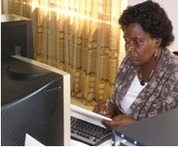
The department of Kiswahili and other African Languages (KOAL) of Maseno University offers a Bachelor of Arts programme with Information Technology (IT), and postgraduate programmes in Master of Arts and Doctor of Philosophy in language, linguistics and literature in Kiswahili and other African languages. The department stands as a centre of excellence in training Kiswahili and other African languages, promoting cultural diversity and advancing external relationships with other partners. KOAL services students from the faculty of education and the department of communication and media technology. Plans to offer Kiswahili as a core subject in the university curriculum are in progress. As Kiswahili continues to gain prominence both as a national and official language in Kenya, a lingua franca of the East Africa Community states, proposed as one of the official languages of the African Union and taught at various universities globally, the department is already undertaking the initiative of establishing viable programmes so as to produce graduates of Kiswahili who can meet the envisaged demand in future. Thus the department is in the process of reviewing its programs in order to conform to socio-economic and political changes and transformations worldwide. The review is taking into account the dynamics in higher education, Kenyan constitution and Kenya Vision 2030. The department also plans to introduce new market driven programmes such as: Translation and Interpretation, Editorial and Publishing, and a full programme of the African languages. Maseno University strategically positioned on the trans-border high way, is a converging point of African languages and cultures taking into cognisance the spread of community identities across nations and regions. The African language programme that is under review intends to attract students, scholars, researchers and artists across regions. The Kenyan dream of being an industrialized state will be achieved through absorption of expertise, professionals and consultants in translation, publishing and editorial firms, media houses and non-governmental organizations. Both Master of Arts (MA) and Doctor of Philosophy (Ph.D) in Kiswahili Studies seek to strengthen the knowledge base of Kiswahili scholars, enabling them to undertake critical analysis of important language, linguistics and literary issues, to conduct and co-ordinate multidisciplinary research, and to disseminate information and data for sustainable use of the language. The knowledge gained by those specializing in Kiswahili Studies will enable adequate analysis, translation, research, teaching and examination of the language leading to effective revitalization and restoration of African languages, and Kiswahili as a national, regional and international language.
Professor Ngugi wa Thiong’o gave a keynote address at the Sunday Times Literary awards, in this address Professor Ngugi communicates that the African middle class is running away from their African languages and in so doing, inflicting child abuse on a national level. Denying a child the opportunity to speak their mother tongue in a society where the majority speaks their African languages alienates the child which is nothing short of child abuse. Ngugi adds that being able to speak in one’s mother tongue channels empowerment over enslavement and advises that we should allow our children to be turned into linguistic slaves.
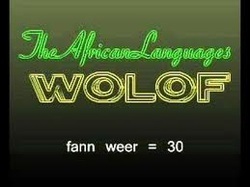
Activists rallied Thursday morning in Nouakchott to demand the formalization of Soninke, Fulani and Wolof, all African languages the government of Mauritania has marginalized since Independence in 1960. Militants from the TouchePas movement gathered in front of the Presidential Palace to bring the question of African languages to the forefront at the Estates General on Education currently in session. TouchesPas activists in Mauritania denoucing de-Africanization
In order to achieve its long-desired goal of complete Arabization of all populations - including indigenous Blacks - the government of Mauritania begun early on to use language as an effective instrument of de-Africanization By 1966, Mauritania had already passed Arabization Acts No65-025 and 65-026, making the Arabic language compulsory in Secondary Schools. African students took to the streets at the news of the legislation but their revolt was brutally repressed by the authorities, who went even farther by purging nonconforming Black Africans officials out of the administration. The second round of forced Arabization came in 1979. Only, this time around the street protests resulted in a compromise in which the 3 African languages were officially recognized and a committee was set up to study the insertion of these languages into the educational system within 10 years.
However, when the term of the panel ended in 1989, the government was in the midst of a genocide campaign against blacks. Killing and expelling Afro-Mauritanians out of the country were the main priorities. The recommendations of the educatinal committee on African language were never known. Read more: http://mjem.org/4/post/2012/07/apartheid-the-mauritanian-way-no-african-languages-allowed.html
La mise en place d'un comité international d'experts chargé de proposer un projet de mise en route des langues africaines pour faciliter l'intégration sous-régionale à travers la libre circulation des personnes et des biens conformément à la charte de la Cedeao sont, entre autres, les recommandations issues, mardi, de la conférence ouest-africaine de recherche comparative, tenue à l'hôtel ''Les Oliviers'' de Porto-Novo.
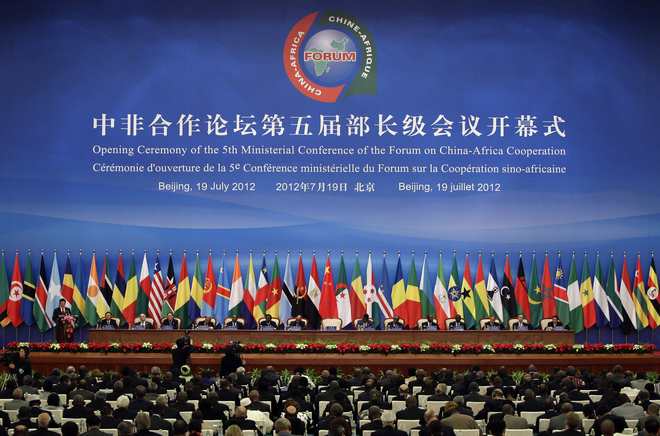
La Chine a annoncé jeudi 19 juillet un doublement de ses crédits à l'Afrique, ce qui les porte à 20 milliards de dollars, pour les trois années à venir. ... 20 milliards de crédits à l'Afrique sur trois ans, c'est le double de ce que l'Afrique recevait jusque-là. Un geste attendu et une enveloppe qui reflète la montée en puissance des engagements chinois en Afrique. Ces chiffres en disent plus long qu’un discours. Depuis trois ans, la Chine est le premier partenaire commercial de l’Afrique avec un nouveau record atteint l’an dernier pour un volume d’échange de 166 milliards de dollars. La Chine a contribué à former 40 000 africains. 2 000 entreprises chinoises étaient installées sur le continent fin 2011 et 29 Instituts Confucius sont aujourd’hui présents dans une vingtaine de pays. Voilà le bilan. Pour l’avenir, le chef de l’Etat chinois s’est engagé à envoyer 1500 personnels médicaux sur le continent et à attribuer des bourses à 18 000 étudiants. Ce partenariat est l’un des meilleurs exemples de réussites de la coopération sud-sud, s’est félicité pour sa part le secrétaire général des Nations unies Ban Ki-moon.
20 Years of the best of African Publishing from a Single Source of Supply. African Books Collective, founded, owned and governed by African publishers, seeks to strengthen indigenous African publishing through collective action and to increase the visibility and accessibility of the wealth of African scholarship and culture.
Kwela Books is proud to announce that three of its authors are included in the longlist for the 2012 Wole Soyinka Prize for Literature in Africa. The authors are: Kgebetle Moele (The Book of the Dead)
Sifiso Mzobe (Young Blood)
HJ Golakai (The Lazarus Effect) More: http://www.kwela.com/News/160
Welcome to UNESCO's Clearing House for Literary Translation, an initiative developed in the framework of the Global Alliance for Cultural Diversity, as well as a centre for information, guidance and encounter for all those (translators, publishers, researchers, archivists, teachers) working on the discovery and promotion of still unknown literatures. Read more: http://portal.unesco.org/culture/en/ev.php-URL_ID=1523&URL_DO=DO_TOPIC&URL_SECTION=201.html
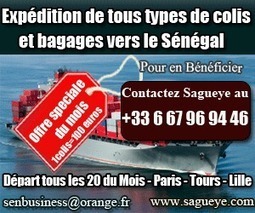
En réaction à la volonté de domination culturelle portée par le projet expansionniste de Napoléon Bonaparte, les écrivains et humanistes allemands Goethe et Lessing disaient : « Racine et Molière n’ont rien dit en français que nous ne puissions mieux dire en allemand ».
De même, confronté aux critiques malintentionnées d’intellectuels, victimes d’arabocentrisme, qui raillaient ses écrits en langue nationale Wolof, Serigne Moussa KA, s’inspirant du Coran, répondait : « Les envoyés de DIEU se sont toujours adressés aux peuples dans leurs propres langues ». (Traduit du Wolof par nous) « Buur Yalla musula yonni Yonen buy waxi tadu ca laminuw namuy woo lay waxé soko gamul jangal wamaa arsalna baci lisaani xawmii mokkal naa ». Très remonté contre les élites arabophones, le plus grand poète, d’expression Wolof de tous les temps, enfonça le clou : « Le jour du jugement dernier si un arabe se vante de sa langue, je dédierais à Cheikh Ahmadou Bamba des poèmes en Wolof qui émerveilleront les arabes ». (Traduit du Wolof par nous) «Bis pènc, fu ab araab puukerewoo ay araab, dinaa tagg Daam ciy Wolof lutax ab araab ne wedam » Sous ce rapport, il convient de combattre résolument les schémas et clichés racistes selon lesquels les langues africaines sont inaptes à véhiculer les savoirs et savoir-faire scientifiques. C’est une évidence de reconnaître qu’aucune langue n’est, à priori scientifique. Elle le devient au fur et à mesure de son contact avec la science. De telles thèses sont le fait de sociologues et de d’anthropologues, dont l’un des plus en vue est Lucien Levy Bruhl qui a fait état, dans l’un de ses ouvrages, de l’existence d’une mentalité primitive qui caractériserait certaines sociétés, mentalité qu’il oppose à la logique des sociétés modernes. Dans son ouvrage intitulé « Comment enraciner la science en Afrique ? » dont le sous-titre est : « Le déverrouillage de la pensée créatrice » ou « Tijji xelum sakk », le professeur Cheikh Anta DIOP, arguments scientifiques à l’appui, a taillé en pièces les thèses inconsistantes de ces idéologues et théoriciens de la colonisation. La conclusion à laquelle est parvenu l’auteur de « Nations nègres et cultures » coule de source : « La structure du cerveau humain est rigoureusement la même chez tous les homo sapiens, qu’il soit noir, blanc ou jaune. Le reste n’est qu’une question d’éducation et de formation ». C’est un secret de polichinelle de dire qu’il n’existe ni sciences françaises, ni russes encore moins sénégalaises. Il existe des catégories scientifiques universelles interprétables dans toutes les langues et, ce, dans le respect des diversités et spécificités culturelles propres aux peuples. Si on devait définir la science, on utiliserait la formule suivante : « Lois générales, formes diverses ». La réhabilitation des langues africaines, condition d’un développement inclusif, doit procéder d’un engagement de la part des décideurs nationaux qui doivent leur réserver la place qu’elles méritent dans la formulation des politiques publiques. Si la volonté politique y est, les pouvoirs publics pourront compter sur un important gisement d’informations engrangées par d’éminents chercheurs sénégalais et africains. Lire la suite: http://www.baolnews.com/index.php/item/4668-contribution-a-propos-du-rapport-des-langues-nationales-au-d%C3%A9veloppement

Luanda – Le colloque international sur la langue portugaise dans les institutions internationales a recommendé ce jeudi, à Luanda, le développement du processus de l'enseignement-apprentissage de la langue en vue de stimuler sa maîtrise comme langue étrangère . La recommendation figure dans le communiqué final du forum dénommé “lettre de Luanda”, qui se déroule dans la capitale angolaise
depuis mardi. Les participants exigent la création d'une commission qui procède à l'inventaire des programmes du cours de traducteurs et
interprètes, au sein des États de la Communauté des Pays de Langue Portugaise (CPLP), visant une meilleure connaissance et développement dans ce domaine. Ils demandent également la production et présence,dans la page électronique de l'Institut de langue Portugaise d'un registre de
traducteurs/interprêtes et d'institutions qui offrent ce service, afin de rendre disponible rapidement l'information dans les villes-sièges des organisations internations internationales . Ils ont aussi conseillé l'élaboration d'un texte informatif dans les six langues officielles de travaille des Nations Unies sur la situation du portugais et l'engagement des pays de la CPLP pour son adoption comme langue officielle de travail de l'ONU et de ses agences. L'organisation d'un forum de débat de planification linguistique avec les blocs régionaux - Union Africaine, Union Européenne, SADC,
MERCOSUL, CEDEAO, CEEAC, ASEAN et les États ACP, entre autres – visant l'internationalisation du portugais dans les organismes internationaux ainsi que d'autres propositions(...). Lire la suite: http://www.portalangop.co.ao/motix/fr_fr/noticias/politica/2012/6/27/Recommandation-sur-developpement-processus-enseignement-portugais,439cbe6c-a8c7-43a3-b506-25d9bdd05248.html
The greatest enemy of any one of our truths may be the rest of our truths. Africans have always spun their own narratives, and interpreted others from the broader world. Hieroglyphics described ancient Egypt to modern man. The anti-colonial dramas of Négritude roused passions around the Francophone world. In 1949, after rejecting the Roman alphabet, Solomana Kanté invented the N’Ko writing system, which revelled in the tonalities of West African Mande speakers and was used by devotees to translate all manner of scholarly and religious texts. Julius Nyerere translated Shakespeare’s “Julius Caesar” and “The Merchant of Venice” into Kiswahili. ... Read more: http://allafrica.com/stories/201207050181.html
Friedrich Nietzsche, en la tercera de sus Consideraciones intempestivas (1874) afirma que toda operación de escritura responde a un gesto de expresión que es exactamente el que definimos como figura retórica. Siguiendo la estela nietzschiana, la figura principal sería la analogía, más concretamente la metáfora y la metonimia. De hecho, la metonimia (que originariamente quiere decir movimiento y que debe entenderse como desplazamiento del sentido) adquiere una extensión y una productividad superiores a las de la metáfora. Huelga decir que la retórica no debe considerarse un mero ornatus, es decir un sistema de adornos del contenido, sino una forma de expresividad connatural a la literatura. Al ser en nuestros días un componente marginal en la formación básica de las Humanidades o las Letras, la retórica no dispone del lugar que merece en la enseñanza de la traducción y ocupa un lugar muy secundario en la investigación sobre traducción. Por desgracia, en teoría de la traducción se ha preferido recurrir a otras nociones para designar las decisiones que toma el traductor, como «estrategia» o «técnica», pero estos términos no nos dicen nada por sí mismos. Chevalier y Delport (L’Horlogerie de Saint-Jérôme, 1985) han definido la figura de traducción en negativo: el tropo surgiría, según estos autores, ahí donde hubiera podido no estar o, dicho de otro modo, ahí donde «la construcción literal es perfectamente posible en términos de fidelidad».
Quand une traduction est fautive, cela peut passer inaperçu. Ou provoquer des situations curieuses, inattendues, voire historiques. Être traducteur, c'est devoir prendre en compte les subtilités de plusieurs langues, mais aussi le contexte de l'écrit, les différentes interprétations possibles et même, le public auquel on s'adresse.
Et à la moindre erreur, cela peut être l'effet papillon : faire naître une légende, susciter un débat, ou rendre perplexe les lecteurs. Petit florilège d'erreurs aux conséquences notables. Read more: http://www.lexpress.fr/culture/livre/traduction-les-erreurs-qui-ont-change-la-donne_983448.html
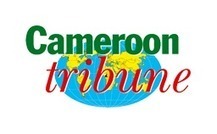
A special edition of “Mercredis des Grandes Conferences” of the Faculty of Arts, Letters and Social Sciences of the University of Yaounde I held in the university on Wednesday April 4. The special edition that came on the eve of celebrations to mark 50 years of the reunification of Cameroon had as theme “Towards the Harmonisation of the Cameroon National Anthem.”
The lecture was chaired by the Secretary General of the University of Yaounde I, Professor Jean Emmanuel Pondi. The speakers were Professors Gervais Mendo Ze, Samuel Efoua Mbozo’o and Dr. Thomas Theophile Nug, all of the University of Yaounde I. The objective of the lecture was to seek ways of harmonising the National Anthem that currently has two versions in French and English. The different speakers pointed out that the National Anthem of Cameroon has the same melody in both French and English, but the lyrics are different.
Professor Gervais Mendo Ze said a close look at the French and English versions necessitates the translation of the French version to English. Another speaker, Hans Nya, lecturer in the University of Bamenda said the National Anthem needs to be modified. “It is good that we harmonise it so that people can sing the same thing. Also, God is not mentioned in the anthem,” he said. He explained that it is necessary mentioning God in the anthem so that He will continue to bless Cameroon. Dr. Bissohong Nug said it was necessary to produce and adopt a unique version which will express the vision, the identity and culture of Cameroon.
The Cameroon was first written in 1927 in Foulassi in present day South Region by 29 students of the local Teacher Training College. The song was adopted in 1957 by the Legislative Assembly as the anthem of Cameroon. In 1970, Members of Parliament noticed that the two versions were not identical and expressed the need for the harmonisation of the two versions. The two versions were later adopted and promulgated in 1978 by the Head of State.

Firefox, le navigateur Internet de la La fondation Mozilla, vient de s'enrichir d'une version en langue peulhe (pulaar).
(Agence Ecofin) - Firefox, le navigateur Internet de La fondation Mozilla, vient de s'enrichir d'une version en langue peulhe (pulaar). C'est ce qu'a annoncé, dans un communiqué reçu par l'Agence de presse sénégalaise, l'association Pulaagu, qui œuvre en direction du développement des technologies de l'information et de la communication en peulh.
Selon le président de cette association, Ibrahima Sarr, «c'est le fruit de deux années de travail, de recherches et de tests qui ont permis l’élaboration du projet, avec le soutien financier et technique du Réseau africain de localisation (ANLOC), basé en Afrique du Sud». Ibrahima Sarr a expliqué que «c'est un travail colossal qui a été abattu pour adapter la terminologie web aux différentes variantes du pulaar parlées dans une vingtaine de pays en Afrique».
Le communiqué de l'association Pulaagu précise que Firefox en langue peulhe «permettra aux personnes alphabétisées en pulaar d’optimiser leur expérience dans le web, en utilisant cette version dans une langue qu’ils maîtrisent parfaitement». Le navigateur en pulaar est aussi «disponible en version mobile sous Android, et sous iPhone comme application non-native à cause des restrictions d’Apple».

Camilia Sobhy, professor of French comparative literature, was appointed on Monday as the new head of Egypt’s National Centre for Translation (NCT) to succeed professor Faisal Younis, who retired in April.
The appointment is Saber Arab's last decision in office as minister of culture before he, along with the whole Egyptian cabinet, resigned on Monday. Camilia Sobhy, the first woman to head the Supreme Council for Culture (SCC) since it was established in the 1980’s, will become the first woman to head the NCT, too. Sobhy had been appointed in December 2011 as head of the SCC and resigned on March 2012 for undisclosed "personal reasons." Sources tell Ahram Online that she resigned due to a quarrell between her and an SCC employee. Minister of Culture Saber Arab resigned yesterday, along with Egypt's entire cabinet, after the president-elect of the country, Mohamed Morsi, was announced on Sunday. As Morsi is currently forming a new cabinet, he is expected to appoint a new culture minister. Some speculate the new culture minister will be Mohammed Abdel-Mone's El-Sawy, who held the same position for two weeks in March 2011, just after the start of Egypt's revolution.
The professions with the widest vocabulary, such as doctors and lawyers, use about 23,000 words. Interpreters and translators who work for these specialized professions often use this kind of advanced technical vocabulary in two languages.
Translation has an impact on virtually every aspect of society, politics, and economics, but how much of what you know about translation is really true? You might be surprised to learn that translation is a highly diverse and complex market -- and one that's bigger than you might think. Here are ten of the most widely held myths about translation:....
Read more: http://www.huffingtonpost.com/nataly-kelly/clearing-up-the-top-10-my_b_1590360.html
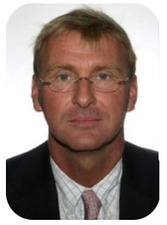
Wits Language School is proud to present the upcoming conference interpreting courses with international trainers James Nolan, Verónica Pérez Guarnieri, Hans-Werner Mühle and Michèle Bo Bramsen. James Nolan will be presenting "Specialised conference interpreting skills for experienced professionals" in Cape Town.
Verónica Pérez Guarnieri will be presenting "Introduction to conference interpreting for professionals" in Cape Town.
Hans-Werner Mühle will also be presenting "Introduction to conference interpreting for professionals" but in Johannesburg.
Michèle Bo Bramsen will be presenting "Principles and practice of interpreting" in Johannesburg Take advantage of this opportunity to learn from these renowned, international trainers and Register Today! The detailed course schedule for these post graduate conference interpreting courses can be found on the 2012 course schedule. This course is aimed at professional interpreters. The aim is to improve participants’ grasp of the principles and professional practice which govern the interpreting profession in intermediate conference interpreting contexts.

Alger En marge du 5e festival international de la littérature et du livre de jeunesse - Les participants à la rencontre organisée, mercredi à Alger en hommage à feu Mohamed Yahiatène, ont mis en avant l’exactitude et la fidélité des traductions du défunt, disparu le 16 mai dernier. Dans ce contexte, M. Mohamed Sari, enseignant de langue arabe à l’Université d’Alger, traducteur et écrivain, a souligné que les traductions signées par feu Yahiatène ont concerné des œuvres scientifiques et littéraires et étaient fidèles. Après avoir rappelé le parcours du défunt qui a suivi des études en Lettres et linguistiques, mais aussi en philosophie, M. Sari a indiqué que Yahiatène était un parfait bilingue qui compte sa propre contribution à la bibliothèque nationale. Les amis et proches du défunt ont rendu hommage à ses qualités rappelant sa passion pour la lecture et l’écriture. L’universitaire Khaoula Taleb Al-Ibrahimi, spécialisée en linguistique a évoqué les efforts fournis par le défunt dans la traduction des concepts et de certaines terminologies du terroir qui n’avaient pas d’équivalent en langue arabe en essayant de les adapter et les actualiser. Les participants ont déploré le départ de ce grand professeur universitaire dans le silence. Un de ses collègues, le professeur Abdelkader Bouzida a annoncé l’organisation, à la prochaine rentrée universitaire, d’une journée d’études sur la vie et l’œuvre du défunt à l’Université de Tizi-Ouzou.

By Ngũgĩ wa Thiong’o for the Sunday Times: Linguistic Power-sharing: Culture and the freedom of expression I feel honored to be invited this evening of literary awards. .... What African languages need is power sharing with English, French, Afrikaans or any other official languages. It is not too much to ask that demonstration of competence in at least one African language be made a condition for promotion. I don’t see why anybody should be allowed to stand for councils and parliament without showing a certified competence in an African language. Corporations can also help in attaching competence in an African language as an added value to the other conditions for hire and promotion. English, Afrikaans, French newspapers should also lead the way in this, for a reporter who also has one or more languages of the country they serve is surely a much better informed journalist. It should be a national effort The struggle to right the imbalance of power between languages should be national with belief and passion behind it. The education system should reflect that commitment and I don’t see why a knowledge of one or more African languages should not be a requirement at all levels of graduation from primary to colleges. And finally, we have to stop the madness of promoting African writing on condition that participants write in European languages. Can anybody think of giving money to promote French literature on condition that they write it in isiZulu? African languages are equally legitimate as tools for creative imagination and in South Africa, there is the testimony of the great tradition of Rubisana, Mqhayi, Dhlomo, Vilakazi, Mofolo and Mazisi Kunene. In translation, Mofolo’s Chaka, written in Sesotho, made a big impact on the work of such greats as Senghor and other African writers.
The third is the artists’ integrity and loyalty to their imagination. It comes with responsibilities to oneself, striving for the best and highest in one’s art, and to one’s community and the world. We are all connected. Sembene Ousmane, the late Senegalese writer and film maker, once said that art must give voice to those without a voice; legs to those without legs: eyes to those who cannot see. I agree.
Art particularly in its prophetic tradition embodies the conscience of the nation. In that sense Art and the freedom of expression are essential to culture for culture is not the same thing as a particular tradition. Culture reflects a community in motion. Culture is to the community what the flower is to a plant. A flower is very beautiful to behold. But it is the result of the roots, the trunk, the branches and the leaves. But the flower is special because it contains the seeds which are the tomorrow of that plant. A product of a dynamic past, it is pregnant with a tomorrow.
|
Scoop it Creator
Charles Tiayon
|








